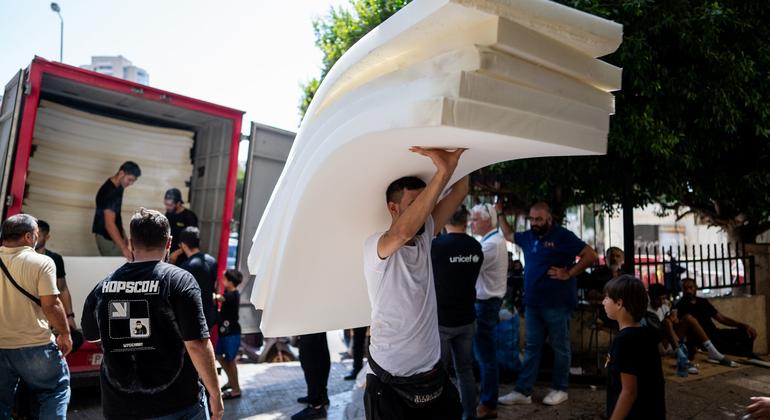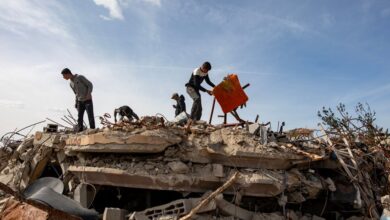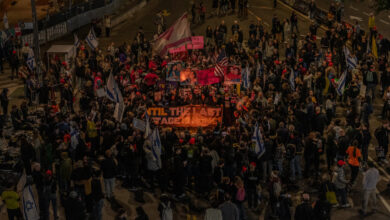Lebanon crisis: Health workers and facilities ‘targeted or attacked’


United Nations Office for the Coordination of Aid, OCHAreported that ambulances and relief centers were “targeting or attacking in Lebanon, causing additional casualties”, added that the United Nations health agency WHO and healthcare partners have continued to provide life-saving surgical supplies to frontline healthcare workers.
International humanitarian law provides special protection for ambulances, medical staff and their patients and must not be targeted, OCHA emphasized in an online updateas Lebanese officials said an Israeli airstrike killed five medical workers in the south of the country.
According to the United Nations World Health Organization (WHO), 92 people in Lebanon were killed and 92 injured in 38 attacks on health care facilities last year, since Hezbollah’s rocket fire into northern Israel increased with the outbreak of war in Gaza.
Hospital evacuated
Nearly 100 medical facilities in southern Lebanon had to close because of Israeli bombardment and
operations on the ground and WHO described five hospitals as “non-functioning” and four hospitals in areas “facing intense conflict” that had been forced to evacuate staff and cancer and dialysis patients In critical condition, other hospitals are operating at full capacity.
“The protection of civilians and health care is a legal and moral imperative that must be upheld,” said Hanan Balkhy, WHO Regional Director for the Eastern Mediterranean. “Attacks on the health care sector cannot continue to be one of the clear signs of conflict in this region.”
In addition to supporting emergency care, WHO health teams “are also stepping up efforts to contain infectious disease outbreaks, focusing on strengthening surveillance and community engagement to detect and early response”. update shared by OCHA.
“Despite ongoing humanitarian efforts, the operating environment remains challenging,” OCHA said. “Active hostilities, disrupted supply chains and physical obstacles – such as damaged infrastructure and road congestion – continue to hinder the delivery of vital aid, save people.”
Jabalia bakery caught fire
Dr. Balkhy also expressed deep alarm about the dire humanitarian situation in northern Gaza, where the Israeli military has increased operations and issued new evacuation orders in recent days.
UNRWAThe United Nations agency for Palestinian refugees announced on Wednesday that it had closed several shelters converted into schools in northern Gaza as the siege of the Jabalia refugee camp entered its sixth day.
The United Nations agency said that only two of eight water wells in the Jabalia refugee camp were still operating, while the United Nations World Food Program (WFP) warned that the north faced severe shortages of bread and food supplies, as explosive shells “burned the only bakery supported by WFP in Jabalya refugee camp”.
There was no other choice but to move south
According to WHO’s Dr Balkhy, about 400,000 people are believed to remain in the north of the region, where hospitals are “overwhelmed and at risk of shutting down”.
According to OCHACheckpoints inside Gaza only allow civilians to move south, while only “small amounts” of humanitarian movement are allowed into the north.
Ongoing efforts by the UN health agency and OCHA to reach medical teams with relief items and fuel “have been hindered or denied,” Dr. Balkhy continued, repeating dire assessment from WHO Director-General, Tedros Adhanom Ghebreyesus, who speak Late Wednesday, the mission to evacuate critically ill patients from northern hospitals and resupply others was hampered for two days.
“WHO mission evacuated critically ill patients from Kamal Adwan, Al-Awda and Indonesian hospitals in northern Gaza, to Al-Ahli and Al-Shifa [hospitals]between hostilities and evacuation orders, hindered…Another mission is planned for [Thursday].
Tedros noted in an online post that Kamal Adwan and Al-Awda hospitals were only “partially operational” and “struggling due to lack of supplies.” the Indonesian hospital cannot accept patients because it is “no longer able to provide services”The WHO chief said, adding that another mission to resupply As-Sahabah hospital in Gaza City with “fuel, blood units and medical supplies” was also rejected on Wednesday. .




